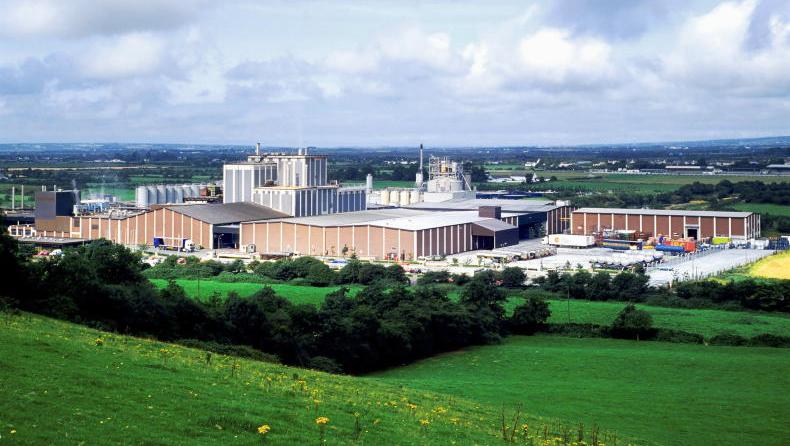The Kerry Group share spinout has provided a window into the amount of wealth the multinational has created for the members of Kerry Co-op over the years. The share distribution occurred as part of deal for the co-op to takeover Kerry’s Irish dairy processing business.
Looking at the data, first reported by the Irish Farmers Journal online, there were almost 16.2m Kerry Group shares distributed among 11,736 shareholders of Kerry Co-op.
With Kerry Group’s share price hovering around the €100/share mark, that gives a total value of the distribution of more than €1.6bn.
Analysis of the data and the distribution shows that more than €1.08bn of the shares released by Kerry Group found their way to Co Kerry. With 6,724 individual allocations in the county, that works out as more than €161,000 per shareholder.
It’s worth noting that the almost €1.1bn allocated to Co Kerry is more than the amount of money Kerry Group paid for all the milk supplied to it in 2023 and 2024.
Obviously, within the average allocation in Co Kerry there are considerable variations, with more than 90 allocations in excess of €1m worth of shares (see Table 1), while more than 700 shareholder received less than €10,000 worth of shares in the county.
The millionaires
Taking a share price of €100, every shareholder who received an allocation of more than 10,000 shares is getting more than €1m in value.
While many of the names on the list have obvious Kerry connections, some may come as a surprise.
Irish Cement getting an allocation of almost 13,500 shares may seem odd, but the company has run a large dairy farm from its Co Limerick base and has been a Kerry supplier for decades.
Mondelez, also on the list with 13,253 shares, is the parent company of Cadbury. That company’s association with Kerry goes all the way back to the formation of Kerry Co-op when North Kerry Milk Products was founded in association with FryCadbury Ltd.
Several of the names on the list are Davy nominee accounts which are stockbroker accounts in which individuals hold their shares. This means that the shares do not belong to Davy stockbrokers, but rather are held on behalf of someone else. It is not possible to know who the beneficial owners of those shares are.
Seven of the allocations above €1m are to estates of members of the co-op.
Of the entire 11,724 list of beneficiaries of the Kerry Group shares, more than 600 are to estates of deceased members of the co-op. With more than 50 years passed since the formation of Kerry Co-op many of those would have been original members who put their money into establishing the first facility in Listowel.
Unlocking value
In the run-up to the vote on the takeover of Kerry Group’s Irish dairy operation by Kerry Co-op, independent adviser to the co-op Jim Woulfe made the point several times that the spinout of shares to members was all about “unlocking the value” they already had.
Previously, shareholders in Kerry Co-op could trade their shares in the grey market, or sell them through the twice annual share redemption schemes run by the co-op in recent years.
The move to give 85% of the co-op’s shareholding back to members means that those members now have a liquid asset that they can sell any time they want, rather than having to rely on the difficult or restricted trading previously.
History shows that previous spinouts of shares in Kerry have actually led to very little selling of those shares
To be clear: the shares that are being given to members were already their property, held through the co-op. But the manner in which they were being held was more akin to saying your front field is worth €20,000 an acre – that might be true, but if you have no way of realising that value, it will have little effect on your lifestyle.
Now those Kerry Co-op members have an asset with the value unlocked, and they are free to trade it however they want.
However, history shows that previous spinouts of shares in Kerry have actually led to very little selling of those shares. Kerry Group CEO Edmond Scanlon said last year that more than 20% of Kerry Group’s shares were held by historical shareholders who tended to trade very little.
The next few weeks and months will show whether that pattern holds again or whether this generation of beneficiaries will have something better to do with the money they can now easily access.







 This is a subscriber-only article
This is a subscriber-only article










SHARING OPTIONS: